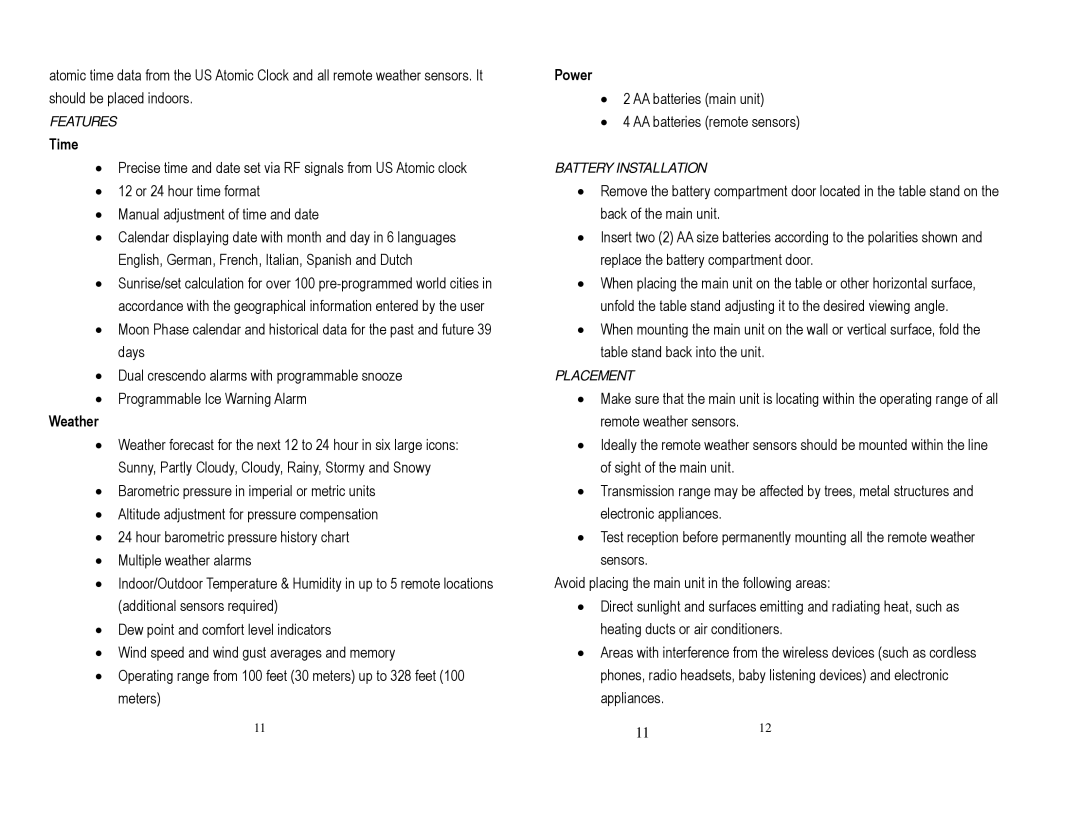atomic time data from the US Atomic Clock and all remote weather sensors. It should be placed indoors.
FEATURES
Time
•Precise time and date set via RF signals from US Atomic clock
•12 or 24 hour time format
•Manual adjustment of time and date
•Calendar displaying date with month and day in 6 languages English, German, French, Italian, Spanish and Dutch
•Sunrise/set calculation for over 100
•Moon Phase calendar and historical data for the past and future 39 days
•Dual crescendo alarms with programmable snooze
•Programmable Ice Warning Alarm
Weather
•Weather forecast for the next 12 to 24 hour in six large icons: Sunny, Partly Cloudy, Cloudy, Rainy, Stormy and Snowy
•Barometric pressure in imperial or metric units
•Altitude adjustment for pressure compensation
•24 hour barometric pressure history chart
•Multiple weather alarms
•Indoor/Outdoor Temperature & Humidity in up to 5 remote locations (additional sensors required)
•Dew point and comfort level indicators
•Wind speed and wind gust averages and memory
•Operating range from 100 feet (30 meters) up to 328 feet (100 meters)
11
Power
•2 AA batteries (main unit)
•4 AA batteries (remote sensors)
BATTERY INSTALLATION
•Remove the battery compartment door located in the table stand on the back of the main unit.
•Insert two (2) AA size batteries according to the polarities shown and replace the battery compartment door.
•When placing the main unit on the table or other horizontal surface, unfold the table stand adjusting it to the desired viewing angle.
•When mounting the main unit on the wall or vertical surface, fold the table stand back into the unit.
PLACEMENT
•Make sure that the main unit is locating within the operating range of all remote weather sensors.
•Ideally the remote weather sensors should be mounted within the line of sight of the main unit.
•Transmission range may be affected by trees, metal structures and electronic appliances.
•Test reception before permanently mounting all the remote weather sensors.
Avoid placing the main unit in the following areas:
•Direct sunlight and surfaces emitting and radiating heat, such as heating ducts or air conditioners.
•Areas with interference from the wireless devices (such as cordless phones, radio headsets, baby listening devices) and electronic appliances.
1112
